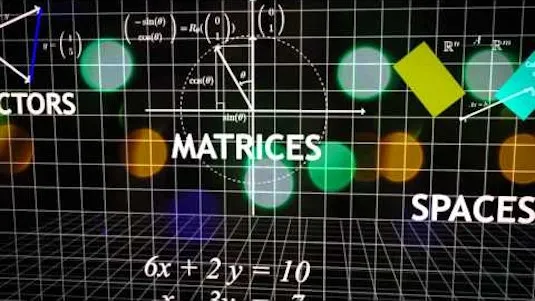
Processing Real-Time Data Streams in Azure 
This course teaches students how to use Microsoft Azure technologies to capture and process real-time data streams in the cloud. Students will learn how to use Event Hubs, IoT Hubs, and Stream Analytics to build Internet-of-Things (IoT) solutions and gain insights from real-time data. ▼
ADVERTISEMENT
Course Feature
![]() Cost:
Cost:
Free
![]() Provider:
Provider:
Edx
![]() Certificate:
Certificate:
No Information
![]() Language:
Language:
English
![]() Start Date:
Start Date:
1st Oct, 2019
Course Overview
❗The content presented here is sourced directly from Edx platform. For comprehensive course details, including enrollment information, simply click on the 'Go to class' link on our website.
Updated in [March 06th, 2023]
Unlock the Exciting World of Learning! Here's What Awaits You:
This data analysis course will teach you how to use Microsoft Azure technologies to capture and process real-time data in the cloud. You will learn how to use Event Hubs, IoT Hubs, and Stream Analytics to build real-time Internet-of-Things (IoT) solutions at scale. You will also gain an understanding of the architecture and components of a real-time data streaming solution. Finally, you will learn how to monitor and troubleshoot streaming solutions.
This course is ideal for anyone who wants to learn how to use Azure to capture and process real-time data. It is also suitable for developers, data engineers, and data scientists who want to gain a better understanding of the architecture and components of a real-time data streaming solution. With the knowledge gained from this course, you will be able to build and maintain real-time data streaming solutions in Azure.
[Applications]
The application of this course can be seen in the development of real-time Internet-of-Things (IoT) solutions. After completing this course, users will be able to use Microsoft Azure technologies such as Event Hubs, IoT Hubs, and Stream Analytics to capture and process real-time data in the cloud. This will enable users to build scalable and efficient IoT solutions.
[Career Paths]
1. Data Engineer: Data Engineers are responsible for designing, building, and maintaining data pipelines and data warehouses. They are also responsible for developing and deploying data models and algorithms to process real-time data streams. The development of cloud-based technologies such as Azure has made it easier for Data Engineers to process real-time data streams at scale.
2. Data Scientist: Data Scientists are responsible for analyzing and interpreting data to uncover insights and trends. They use a variety of techniques such as machine learning, natural language processing, and statistical analysis to process real-time data streams. With the help of Azure technologies, Data Scientists can quickly and easily process real-time data streams to uncover valuable insights.
3. IoT Developer: IoT Developers are responsible for developing and deploying Internet-of-Things (IoT) solutions. They use a variety of technologies such as Azure Event Hubs, IoT Hubs, and Stream Analytics to capture and process real-time data streams. With the help of Azure, IoT Developers can quickly and easily build real-time IoT solutions at scale.
4. Cloud Architect: Cloud Architects are responsible for designing and deploying cloud-based solutions. They use a variety of technologies such as Azure Event Hubs, IoT Hubs, and Stream Analytics to capture and process real-time data streams. With the help of Azure, Cloud Architects can quickly and easily build real-time cloud-based solutions at scale.
[Education Paths]
1. Bachelor of Science in Computer Science: This degree path focuses on the fundamentals of computer science, such as programming, algorithms, data structures, and software engineering. It also covers topics such as artificial intelligence, machine learning, and cloud computing. This degree is ideal for those looking to develop the skills needed to build and maintain real-time data streaming solutions in Azure.
2. Master of Science in Data Science: This degree path focuses on the application of data science techniques to solve real-world problems. It covers topics such as data mining, machine learning, and big data analytics. This degree is ideal for those looking to develop the skills needed to analyze and interpret real-time data streams in Azure.
3. Master of Science in Cloud Computing: This degree path focuses on the fundamentals of cloud computing, such as distributed systems, cloud architecture, and cloud security. It also covers topics such as cloud storage, cloud computing services, and cloud-based analytics. This degree is ideal for those looking to develop the skills needed to design and deploy real-time data streaming solutions in Azure.
4. Master of Science in Artificial Intelligence: This degree path focuses on the fundamentals of artificial intelligence, such as machine learning, natural language processing, and computer vision. It also covers topics such as robotics, autonomous systems, and deep learning. This degree is ideal for those looking to develop the skills needed to build and deploy intelligent real-time data streaming solutions in Azure.
Course Provider

Provider Edx's Stats at AZClass
Discussion and Reviews
0.0 (Based on 0 reviews)
Explore Similar Online Courses

Aircraft Maintenance

Linear Algebra - Foundations to Frontiers

Python for Informatics: Exploring Information

Social Network Analysis

Introduction to Systematic Review and Meta-Analysis

The Analytics Edge

DCO042 - Python For Informatics

Causal Diagrams: Draw Your Assumptions Before Your Conclusions

Whole genome sequencing of bacterial genomes - tools and applications

Microsoft Azure Online Data Engineering Training

Cloud Developer using Microsoft Azure


Start your review of Processing Real-Time Data Streams in Azure